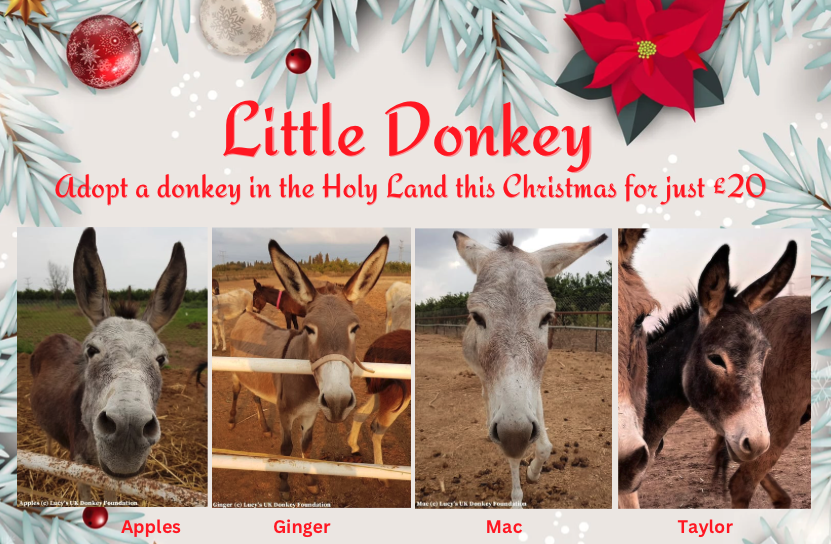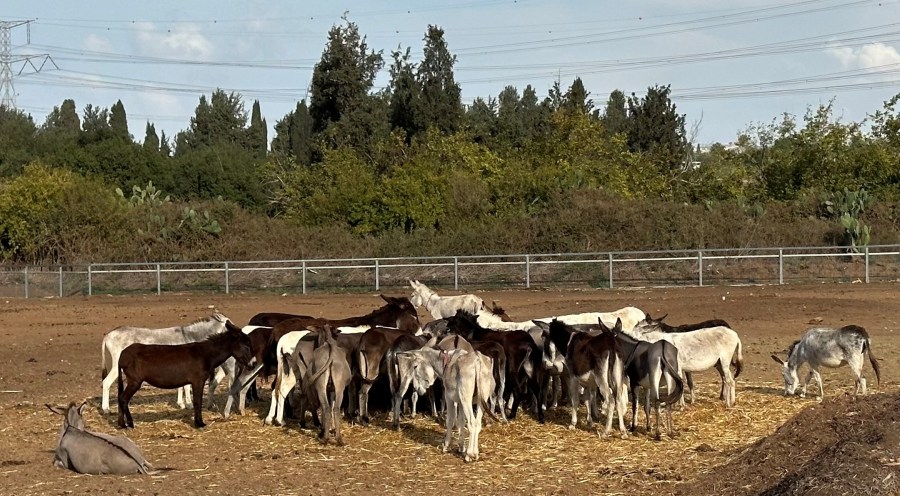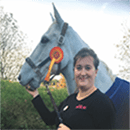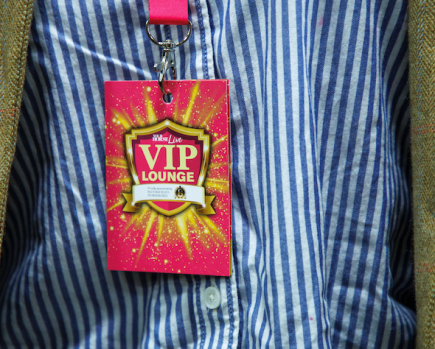The founder of a donkey sanctuary in Israel has said that its animals and their carers are currently “safe”, but the sanctuary needs vital help and support “now more than ever as we face such great uncertainty” and is urging people to adopt a donkey this Christmas for just £20.
Lucy’s UK Donkey Sanctuary, which was founded by Brighton-born Lucy Fensom in 2015, is located in Israel next to the Palestinian West Bank border, just over 60 miles away from Gaza. It is currently home to 51 donkeys and two horses.
“Obviously the situation [here] is extremely worrying and unnerving, particularly as tensions rise not only in Gaza but also within the Palestinian West Bank, and on Israel’s northern borders with Lebanon and Syria,” says Lucy. “We know there is much worry about what might happen next, but none of us can possibly know how or when this situation will end. Of course the war is not only confined to Israel’s southern borders; Gaza is one part of it and the Houthi rebels sending missiles and drones from Yemen is another.
“On Israel’s northern borders with Syria and Lebanon, rockets, missiles and drone attacks are also being constantly fired into Israel by the Iranian-backed Hezbollah. Beyond that border is a seemingly endless horizon of hostile countries that call for Israel to cease to exist,” continues Lucy. “The situation is changing all the time. For us, our donkeys and their sanctuary in our immediate area, things are relatively under control and there has been increased security everywhere.”
Unimaginable cruelty: tormented, stoned and eyes gouged out
The scale of cruelty inflicted on and suffered by Israeli donkeys (both intentionally and through lack of education) is heart-breaking and upsetting for any animal lover. Donkeys taken in by Lucy’s sanctuary include:
- Zachariah, who was found on the Syrian border. His eyes had been gouged out and he had been stabbed on both sides of the neck.
- Cicely was ridden by three children at a time and beaten with a plank of wood.
- Noah was confiscated by the Israeli army when they witnessed the donkey cowering as his Palestinian owner beat him.
- Shanaya was found tethered with chains and ropes around her neck in the boiling sun without shade or water.
- Arnold was tormented and stoned by youngsters after being abandoned at a market in torrential rain.
- Alan was hit by a car and left wounded and stranded on the side of a busy road.
- Fiona was “thrown out” by her owner as a young foal because she “distracted” her mother from doing her work.
Adopt a donkey this Christmas
 Adoption of a donkey in the Holy Land this Christmas costs just £20 ($30/€28).
Adoption of a donkey in the Holy Land this Christmas costs just £20 ($30/€28).
“Please continue to support our small sanctuary, now more than ever. We need vital help in whatever way possible, as we face such great uncertainty,” says Lucy.
“If you are able to make a donation, or can encourage others to do so, no matter the amount, it will be so gratefully received.”
Adopt a donkey in time for Christmas here. The deadline for printed certificates (UK only) is 10 December and email certificates (worldwide) is 20 December.
‘Builder donkeys’ struggling up staircases
Due to much unrest and uprising within the Palestinian West Bank, the sanctuary has had to temporarily stop its outreach work, which involves visiting towns and cities to offer free veterinary treatment, care and advice to hard-working donkeys and their owners.
“It is an extremely precarious time and the situation is more volatile than ever before. It’s dangerous and a risk to life and for most people, taking their donkey or horse to a veterinary clinic is just not a priority,” says Lucy.
The last outreach clinic in the Palestinian city of Nablus helped to alleviate some of the suffering of ‘builder donkeys’, whose ‘job’ is to help construct apartment buildings and houses on the hillsides of the city.
“The donkeys are made to bear the weight of bricks, rocks and sand far beyond their capacity. Their limbs strain to repeatedly struggle up numerous staircases, all day long, in searingly hot temperatures,” explains Lucy. “As a result their bodies have built up such excessive muscles that in some cases it almost looks unnatural for a donkey, but all that muscular tissue does not protect their joints from inflammation and their poor knees from buckling under the huge load upon their backs.”
Sanctuary vet Dr Nour treats infected eyes and wounds, administers anti- inflammatory injections and antibiotics, and applies myriad dressings and bandages. Handmade nose chain covers are given out and owners are encouraged to show their donkeys compassion and educated in how to care for them better.
“Often owners don’t have access to a proper vet and animals are improperly injected causing horrific injuries and wounds,” adds Lucy. “Our vet helps as often as we can manage but we desperately need more expert help from a bigger entity to develop our outreach work. Sadly, the location in which we work is plagued with dangers and complications which literally make it impossible.”
Nationwide appeals to take in stray animals
Lucy is married to Adi, an Israeli, and their teenage son Robert, 19, was called up for compulsory military service earlier this year. Two Palestinian workers erecting the sanctuary’s new perimeter fence have not been able to enter Israel since war broke out, while one of the sanctuary’s helpers, May, was recently called up to join her army reserve force.
Another worker, Eyal, is unlikely to be called up as he is over 45, however several of his friends were at the fatefal desert party on 7th October and two were taken hostage by Hamas. Eyal recently helped build a shelter for stray cats at the sanctuary.
“There are nationwide appeals for people to offer a home or safe place for these animals to live, particularly for the many cats,” says Lucy. “Various Israeli animal welfare groups are desperately trying to care for the lost little pets of the October 7 victims. Many villages in the Gaza border area were infiltrated that day and apart from the horrendous acts committed upon families, the terrorists also shot dead some of the animals, including dogs, cats and parrots, and they stole horses.
“With Eyal’s help, we have almost completed building a safe walk-in shelter so that we can perhaps do our bit by helping to take in a few little stray cats,” continues Lucy. “We would envisage leaving them safely in the shelter for one month before releasing them to live freely at our sanctuary where they would of course continue to be cared for and have constant access to food, water and shelter.”
‘The financial burden is enormous’
Lucy told Your Horse that the financial burden of keeping the sanctuary afloat is enormous — and that was the case even before war broke out. Bills run to some £6,000 a month — hay alone costs £2,000 — and the sanctuary survives on donations alone. Neither Lucy, nor any of the workers, receive a wage.
“We do desperately need to increase our number of supporters and all donations to our charity, however small they may be, are so deeply appreciated,” says Lucy.
Enough money was raised to replace the four-acre sanctuary’s perimeter fence, for which work was recently completed after several setbacks.
“War broke out a short while after we’d commenced working on the fence and our Palestinian workers were suddenly no longer able to enter Israel,” recalls Lucy. “After some time, we did find two Israeli Arab men but due to increased security and people’s general fears, we had to seek special clearance for them to be allowed entry into the village. Clearance was given before telling us that they were not able to come as required.”
‘Great piece of mind’
Two more pairs of helpers followed, but all four were called up to the army. Eventually Eyal found a young man from the south of Israel who agreed to complete the remainder of the work.
“The new perimeter field fencing gives us such great relief and peace of mind, so we truly thank [our supporters] with all our hearts for having made this possible,” adds Lucy. “I don’t think I can put into words the immense gratitude that we feel to everybody who made it possible for us to proceed with this absolutely crucial project.”









